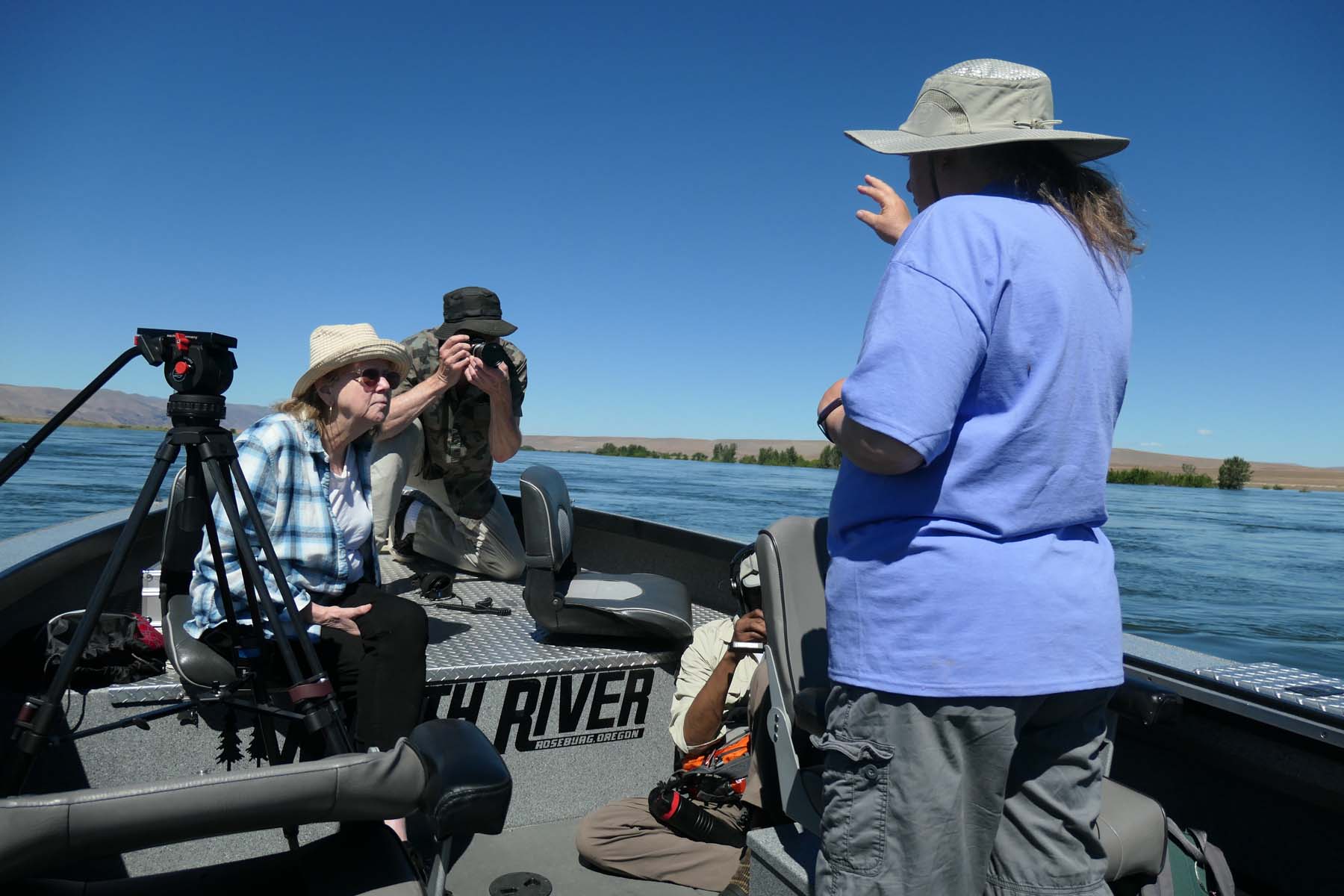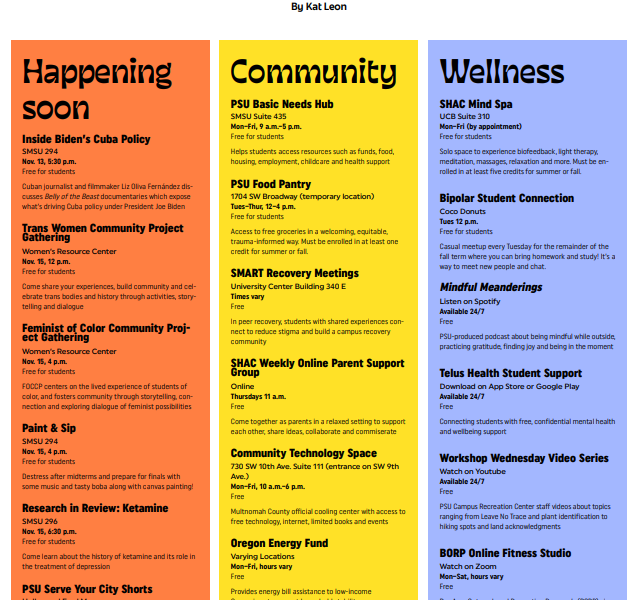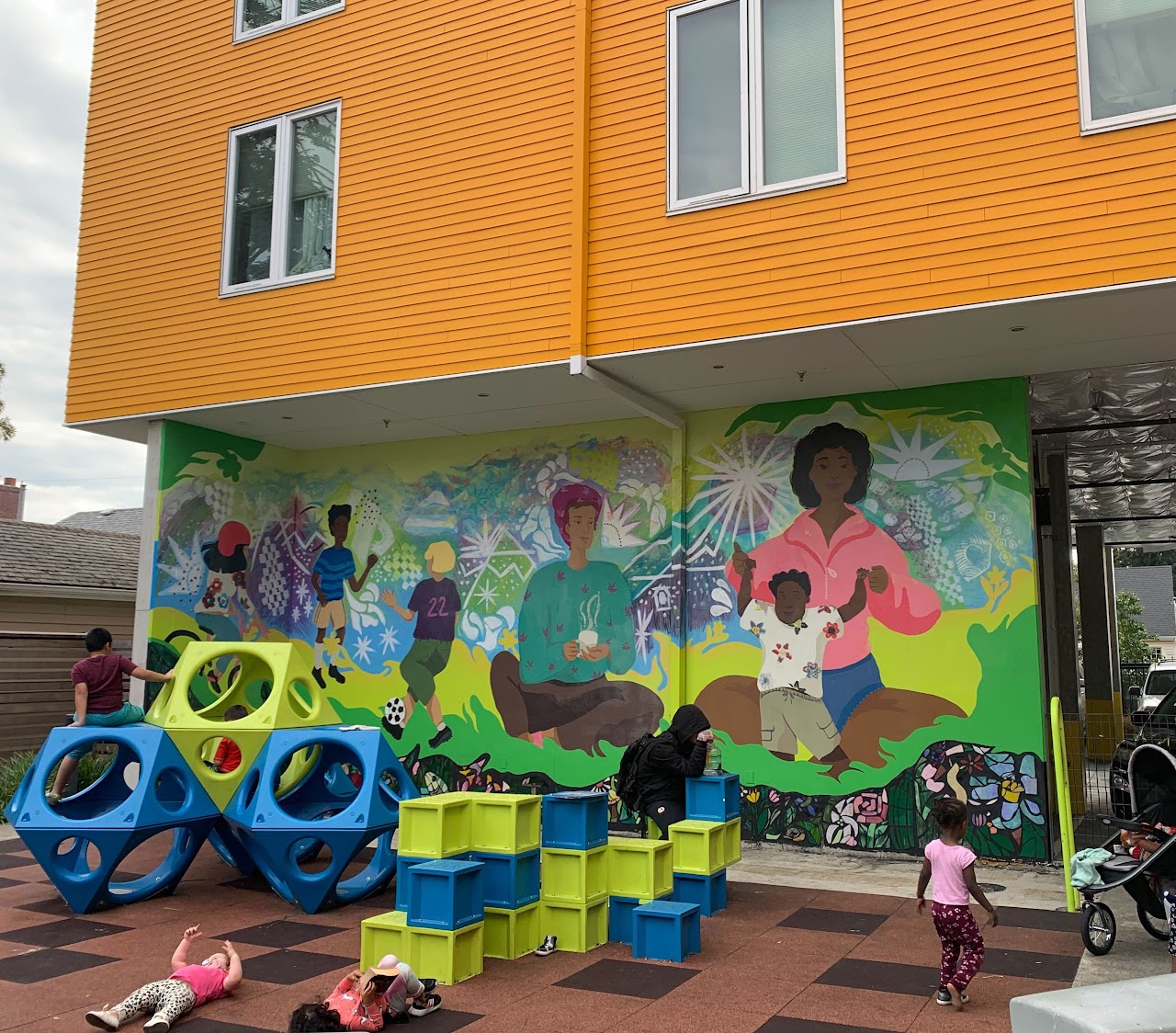Among Dr. Jan Haaken’s many titles are clinical psychologist, documentary filmmaker, feminist and professor emeritus of psychology at Portland State. Her career began in the early ‘70s when social movements were front-and-center and new theories in psychology were emerging. She’s written several books on trauma, memory and psychological storytelling.
In the early aughts, Haaken began using documentary filmmaking to inform broader audiences about issues she felt must be heard. Since then, she’s directed and produced over a dozen feature-length and short documentary films. One of these—Atomic Bamboozle: A False Promise of an Atomic Renaissance—just finished screening in Europe.
Portland State Vanguard spoke with Haaken to learn more about her career.
VG: You recently got back from a trip to Germany and Estonia?
Haaken: Yes, it was great—a combination of vacation and work. I met with International Physicians for the Prevention of Nuclear War in Berlin. They were doing an article on my new documentary and doing a screening there.
Then I had a screening in Tallinn, which is a fabulous place if you ever get the chance to go there. There’s a group called the Estonian Green Movement, which is made up of environmentalists who are fighting against a lot of false solutions to the climate crisis. They found out about my film and asked me to come and screen it there. I was part of a panel with two other speakers. That was really a highlight of the trip.
I also met a lot of young people who are very involved in fighting nuclear power. Here in the [United States], it’s been more of a generational issue where older people who have more of the memory of nuclear power—the fight against it in the ‘70s and ‘80s, proliferation and the threat of nuclear war—it’s more on their minds than on those of younger people here.
VG: How long did you work on this film?
Haaken: This has been the fastest feature I’ve done. I’ve been making films since maybe 2001. Usually, by the time you raise money and get grants, it can often take a number of years. This one started early last year doing pre-production research. We started filming last summer, and we finished early March. So that’s very fast, eight months for a feature-length project.
I started using this medium of documentary to take complex topics that are socially controversial or contentious or anxiety provoking and bring them into this medium where people can hold ideas in their minds for a longer period than one might be able to when these issues are in the news.
VG: How would you describe your approach in filmmaking?
Haaken: I usually put a lot of time into pre-production research. It matters to me that the participants are thoughtful and that you trust them, especially if they’re going to educate you about a problem.
There are filmmakers—including documentary filmmakers—who think of the medium in more artistic, expressive ways of working through a problem of interest to them, or there are those who are academics who mainly have a research interest. I’m an activist as well as an academic. I’m interested in documentaries that help people think more deeply about problems and perspectives that get shut down and marginalized quite quickly in this culture.
VG: How did you get into filmmaking? You said you started in 2001?
Haaken: Yes, I was doing a research project. I got a small grant from Human Rights Watch to go to West Africa. At the time, the Sierra Leonean War was coming to some kind of tenuous conclusion, and people were fleeing into Guinea from Sierra Leone. I was able to visit refugee camps in the area around Gueckedou.
I checked a Hi8 camera out from the PSU audiovisual room… I had been thinking about using cameras as a way of capturing in a richer, fuller way the experience of people in the field that were unfamiliar to me. Rather than a notebook or a recorder—which I’d been using for years in my field research—I thought it would be better to use a camera.
When I was back in Portland, I got funding through PSU to have a conference at the university, which allowed me to bring in Sierra Leonean women to talk about the war. At the time, these women were being recognized as victims of war, primarily rape survivors.
Much of the attention at the time was paid to war crimes that took place during the war. There was very little focus on what women had to say about war, about their analyses of war. It was important to me, and it has been important in all of my projects from a feminist perspective, not just to show the suffering or abuse or violence against women, but to bring out how women are thinking about and analyzing the problems of their existence.
VG: You mentioned developing a sense of trust with an interviewee. How do you accomplish that?
Haaken: Trust is a complicated construct, isn’t it? It’s something that you develop an intuition for when you meet people. There’s a whole psychology on that. We size each other up pretty quickly. ‘Does this person feel trustworthy?’ But it’s also a relational dynamic that develops over a period of time.
I’ve worked with a lot of Indigenous people and tribal communities over the last five years where trust is a very scarce commodity. The history of broken promises and violence and betrayal is deep and continuing. So it’s something you have to earn over a long period of time.
VG: You grew up in Washington, is that right?
Haaken: I grew up north of Seattle in a very Christian community. All my grandparents were Norwegian immigrants. My parents were not formally educated. That’s another example of the different fates of people based on their race and ethnicity.
My dad didn’t go to college, and my mom was a maid who hadn’t graduated high school. But my dad worked his way up from working in the fisheries to eventually becoming an airline executive in the ‘50s and ‘60s. The biggest struggle for me was religion, growing up in a very conservative religious family.
VG: Do you think that informed your decision to go into psychology?
Haaken: Yes. In fact, I once told my brother—who was a hellfire-brimstone preacher who tyrannized me growing up and had a lot of power in the family—that he had an enormous influence on me becoming a psychologist, feminist and an atheist.
It was my way of fending him off. I told him, ‘The belief that a heavenly father, as you think of him, would punish someone for turning their back on him by condemning them to eternal suffering in hell is a pathological concept.’ If that were translated into anything human, it would be someone who would be unthinkably evil.
VG: Do you think choosing psychology was, in some way, an attempt to understand god?
Haaken: I think I was trying to understand belief and how people find meaning and purpose in their lives.
VG: Can you tell me more about your career in psychology?
Haaken: My first career was as a psychiatric nurse. I was in a research unit at the University of Washington. Then, in the early ‘70s, I worked as a child psychiatric nurse. I went back to school in 1974 and then went on to graduate school.
I became very involved in women’s health as a feminist and as a nurse, first and foremost. There were a lot of social movements at the time—educational reform movement, anti-war movement, radical psychiatry. I published a book a couple of years ago called Psychiatry, Politics, and PTSD where I talk about some of that history, including my own history.
I wrote a lot about gender and sexuality, in particular. It’s been a theme in several of my publications. I was also very involved in writing about sexual abuse and trauma. I felt wary of developments within feminism that put too much emphasis on trauma.
So, for example—and I use this example in my recent book—when I was a girl, my mother told me that if you were raped, it’s better you be killed than to live in dishonor. There are many cultures that still believe that. Courts often require women to say that their ‘lives are ruined’ in order to go after their attackers, saying ‘I’ve been ruined,’ to win in court.
My feminism was very much about acknowledging sexual trauma but not giving too much up of oneself in advancing a claim or grievance. As a clinician, I saw many women over the years who had been raped or assaulted, and I would work with them on this idea that they haven’t been ruined.
In a certain way, what’s been done to them has to do with somebody else putting their shit in them. And, psychologically, they need to put it back. My feminism was very devoted to this idea that we are intact and we can also be rational, that if we’re emotional, it doesn’t mean we’re hysterical.
VG: How would you describe the role storytelling plays in the way we develop a sense of self?
Haaken: I was initially drawn to psychoanalysis, because it does bring the body into consciousness. Even when [Sigmund] Freud is rightfully criticized for talking about women feeling castrated, at least he talked about how women felt about their bodies and about men’s attachment to their penis as a symbol of power.
So much of psychology is disembodied when you think about it. Storytelling is at the center of psychoanalytic theory. A lot of it is about how people tell stories about themselves and how they listen to those stories. There is literature on narrative psychology that makes some of these same arguments that autobiographical memory and many other areas of memory are structured through stories. People often remember through stories.
VG: As in, there’s an arc, there’s a protagonist and there’s an antagonist?
Haaken: There are dramas that inform autobiographical memory. But then, of course, there are areas of memory and knowledge where people acquire facts or information in a non-storied form. So, I’m not saying that all knowledge or all memory takes the form of a story.
I don’t have a practice anymore, but when people would come to me as a clinician and have a complaint, what’s called the ‘presenting complaint,’ maybe not being able to sleep, having fights with a partner, or feeling lonely or having trouble enjoying life, they’ll say ‘This is what bothers me,’ but what emerges is a story.
My approach to storytelling is that, by inviting more complex accounts of how things happen and the context in which they happen, people are learning to be better observers of their own experiences, a kind of nonjudgemental receptivity. Noticing seems to be the first step in rewriting those narratives.
VG: How does one go from being hurt to being guarded to opening back up again?
Haaken: In three easy steps. You’ve just cracked the process! Of course, it depends… I don’t mean to make things seem too uniform, but in the way I talk to my son, to other young people, and to clients, I’m listening to what conclusions they draw. ‘What are the lessons you are drawing from feeling hurt or wounded? What are you taking from this?’
For some people, the lesson is ‘I should never let my guard down,’ or ‘I need to always be on top of my game.’ I think it’s important for each of us to listen to the conclusions we make about ourselves. ‘What’s our call to action?’






